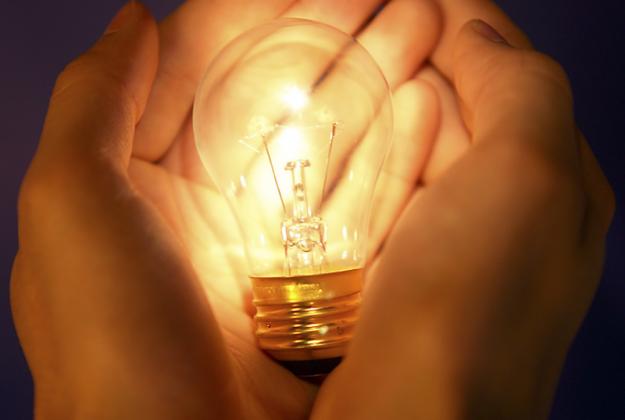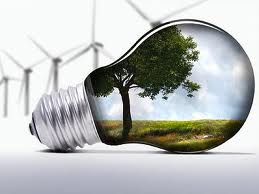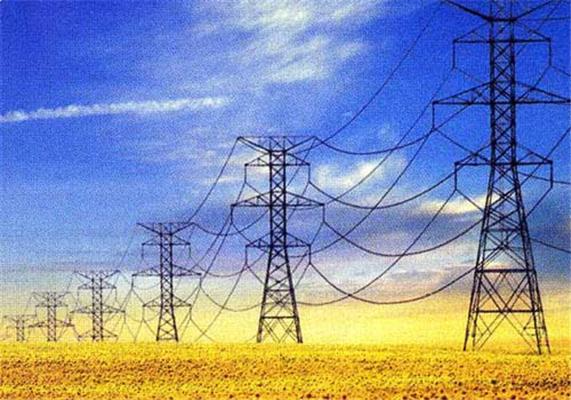
- •History of electricity
- •I. Listening and reading
- •II. Vocabulary
- •III. Reading comprehension
- •1. Answer the Questions
- •4. Complete the sentences
- •IV. Analyze
- •V. Translate
- •VI. Speak
- •I. Listening and reading
- •What is energy?
- •II. Vocabulary
- •III. Reading comprehension
- •1 . Answer the Questions
- •4. Complete the sentences
- •IV. Analyze
- •V. Translate
- •VI. Speak
- •Nuclear energy
- •I. Listening and reading
- •N uclear problems
- •II. Vocabulary
- •III. Reading comprehension
- •1 . Answer the Questions
- •4. Complete the sentences
- •IV. Analyze
- •V. Translate
- •VI. Speak
- •Energy sources
- •I. Listening and reading
- •II. Vocabulary
- •III. Reading comprehension
- •1. Answer the Questions
- •4. Complete the sentences
- •IV. Analyze
- •V. Translate
- •V I. Speak
- •Solar energy
- •I. Listening and reading
- •The energy of the sun
- •II. Vocabulary
- •III. Reading comprehension
- •1 . Answer the Questions
- •4. Complete the sentences
- •IV. Analyze
- •V. Translate
- •VI. Speak
- •I. Listening and reading
- •Types of mechanical energy
- •II. Vocabulary
- •III. Reading comprehension
- •IV. Analyze
- •V. Translate
- •VI. Speak
- •Tidal energy
- •I. Listening and reading
- •Tidal energy
- •II. Vocabulary
- •III. Reading comprehension
- •1. Answer the Questions
- •4. Complete the sentences
- •IV. Analyze
- •V. Translate
- •VI. Speak
- •Energy conservation
- •I. Listening and reading
- •Energy conservation
- •II. Vocabulary
- •III. Reading comprehension
- •1 . Answer the Questions
- •4. Complete the sentences
- •IV. Analyze
- •V. Translate
- •VI. Speak
И.А.Масачева

ENGLISH
FOR
POWER ENGINEERING
Изд-во АлтГТУ
Барнаул 2012
Министерство образования и науки Российской Федерации
Федеральное государственное бюджетное образовательное учреждение
высшего профессионального образования
«Алтайский государственный технический
университет им. И. И. Ползунова»
И.А.Масачева
ENGLISH
FOR
POWER ENGINEERING
Изд-во АлтГТУ
Барнаул 2012
Масачева И.А. English for power engineering : учеб. пособие / И.А.Масачева.; Алт. гос. тех. ун-т им. И.И.Ползунова. – Барнаул: Изд-во АлтГТУ, 2012. – 91 с.
Пособие предназначено для студентов 2-го курса энергетических специальностей, владеющих базовой грамматикой английского языка и имеющих базовый запас английских лексических единиц.
Пособие состоит из 8 уроков. Каждый урок включает аутентичный текст энергетической направленности, словарь с транскрипцией, вопросы для проверки понимания прочитанного и цикл упражнений на усвоение, и закрепление материала.
СОДЕРЖАНИЕ
стр
UNIT 1 History of electricity……………………………………………….. …..…. 4
UNIT 2 Energy ……………………………………………………………..............17
UNIT 3 Nuclear energy….……………………………………………………….…27
UNIT 4 Energy source…………………………………………………………...….38
UNIT 5 Solar energy……………………..……………………………………….…49
UNIT 6 Mechanical Energy………………………………...…………………….....60
UNIT 7 Tidal Energy ………………………………………………………….…....69
UNIT 8 Energy Conservation……………………………………….……………....79
Литература …………………………………………………….…………………...90
U NIT
1
NIT
1
History of electricity
Preview
Answer the questions. Then talk about your answers. 1) Do you know who invented electricity? 2) What role does electricity play nowadays? 3) Was the discovery of electricity a product of a single inventor? 4) What are the advantages of electricity? 5) Can you imagine your life without electricity? |
I. Listening and reading
![]()
Listen to the text
![]()
Read and translate the text
WHO INVENTED ELECTRICITY?
I t
will not be wrong to describe electricity as being widely-used.
t
will not be wrong to describe electricity as being widely-used.
The application of electricity has grown to the point where most of us lead “electrified lives” surrounded by a variety of that use electric energy.
Who invented electricity? A chain of inventions of electricity led to the modern-day use of electric power. Lightning is the purest and most basic form of electricity. It required great effort to bring this energy in everyday use. Here we give you some of the most famous names in the history of the discovery of electricity.
Benjamin Franklin discovered electricity through his well-known experiment of flying a kite during a thunderstorm. On June 15, 1752 Benjamin Franklin tried to prove his theory that lightning was electrical, through his experiment of flying a kite during a thunderstorm.
Michael Faraday discovered that moving a magnet inside a wire coil could make electricity. He was able to build the first electric motor. He later built a generator and a transformer. This has become his great contribution to the field of electromagnetism.
Volta discovered that chemical reactions could be used to create cathodes and anodes. The difference of electric potentials between them could lead to the flow of a current between them.
Thomas Edison’s invention of the electric light bulb (lamp) was a unique invention. It led to the creation of an electric power system.
So, we see that the history of electricity runs from the period before Christ up to the computer age today.
NOTES
Read the following proper names
1. Benjamin Franklin ['benʤəmɪnˈfræŋklɪn]
2. Michael Faraday ['maɪklˈfærədeɪ]
3. Volta [ˈvɒltə]
4. Thomas Edison ['tɔməsˈədɪsn]
II. Vocabulary
1. widely-used ['waɪdlɪ juːzd] |
широко используемый |
Mobile phones are widely-used nowadays. |
Мобильные телефоны сегодня широко используются. |
2. application [ˌæplɪ'keɪʃn] |
применение |
application of new techniques |
применение новых технологий |
the place of application of a force |
место приложения силы |
new applications for old remedies |
новое использование старых средств |
The application of new scientific discoveries usually makes jobs easier to do. |
Применение новых научных открытий обычно облегчает выполнение работ. |
3. to surround [sə'raund] |
окружать |
In two minutes he was surrounded by a ring of men. |
Через минуту вокруг него образовалось «кольцо» любопытных. |
4. lightning ['laɪtnɪŋ] |
молния |
The tree was struck by lightning. |
Молния ударила в древо. |
5. kite [kaɪt] |
воздушный змей |
to fly a kite |
запускать змея |
6. contribution [ˌkɔntrɪ'bjuːʃn] |
вклад, ценные достижения |
She made an outstanding contribution to science. |
Она внесла огромный вклад в науку. |
7. unique [juː'niːk] |
уникальный, единственный в своём роде, исключительный |
This letter is a unique document.
|
Это письмо - уникальный документ. |
8. thunderstorm ['θʌndəstɔːm] |
гроза |
A thunderstorm cooled the atmosphere. |
Гроза принесла прохладу. |
9. device [dɪ'vaɪs] |
устройство, прибор |
It is a device for cleaning water from iron. |
Это устройство для очистки воды от железа. |
10. to invent [ɪn'vent] |
изобретать, создавать |
He invented a new machine. |
Он изобрел новую машину. |
invention [ɪn'venʃn] |
изобретение |
We know many inventions of Edison. |
Мы знаем много изобретений Эдисона. |
11. to require [rɪ'kwaɪə] |
приказывать, требовать |
These skills require years of experience. |
Эти навыки требуют многолетнего опыта. |
12. discovery [dɪ'skʌvrɪ] |
открытие, обнаружение |
With the discovery of oil in the region, the situation changed. |
После того, как в регионе нашли нефть ситуация изменилась. |
to discover [dɪ'skʌvə] |
обнаруживать, понять |
I discovered I was out of gas. |
Я понял, что у меня кончился бензин. |
13. through [θruː] |
посредством, через |
Не discovered electricity through his well-known experiment. |
Он обнаружил электричество посредством своего хорошо известного опыта. |
14. experiment [ɪk'sperɪmənt] |
опыт, эксперимент |
The example demonstrates the results of this experiment. |
Пример демонстрирует результаты эксперимента. |
15. generator ['ʤenreɪtə] |
генератор |
The plant is provided with a steam generator. |
Установка снабжена парогенератором. |
16. transformer [trænts'fɔːmə] |
трансформатор |
A transformer is used to transfer energy. |
Трансформатор предназначен для передачи энергии. |
17. potential [pə'tenʃl] |
напряжение, потенциал |
The potential for achieving energy savings is considerable. |
Потенциал сбережения энергии является значительным. |
18. current ['kʌrnt] |
ток |
19. bulb [bʌlb] |
электрическая лампочка |
to put in a bulb |
ввернуть лампочку |
A bulb blowed out. |
Лампочка перегорела |
20. magnet ['mægnət] |
Магнит
|
